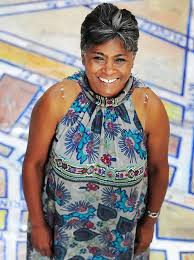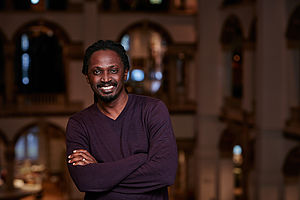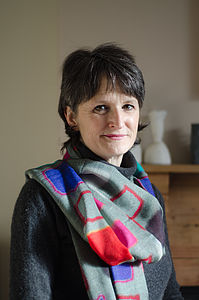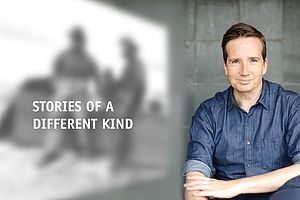HTW-Lecture Series@...
Museumswissenschaften unterwegs
Regelmäßig lädt der Studiengang nationale und internationale Gäste ein, um über ihre Forschung zu diskutieren. Die Veranstaltung findet immer an Partnerinstitutionen oder -museen statt, um sowohl Ort als auch Menschen miteinander zu vernetzen.
... @ Technikmuseum
Die fünfte HTW-Lecture findet am 3.12.2019 im Deutschen Technikmuseum Berlin statt.
Der Vortrag ist kostenfrei.
Gegenbilder und Provenienzen ausstellen
Nicht nur für NS-Gedenkstätten und Ethnologische Museen ist das Ausstellen von Sammlungen, die als heikel und sensibel bezeichnet werden, eine Herausforderung. Die aktuelle Debatte über den Umgang mit kolonial geprägten Sammlungen macht deutlich, dass auch Kunst-, Naturkunde- und Technikmuseen sich mit der eigenen Sammlungspolitik und Strategien des kritischen, reflexiven Ausstellens auseinandersetzen müssen.
Am Beispiel rezenter Ausstellungen zeigt der Vortrag, wie Sammlungsgeschichte präsentiert, Perspektiven erweitert und Gegenbilder etabliert werden können.
Susanne Wernsing kuratiert Ausstellungen, zuletzt am Deutschen Hygiene-Museum Dresden zum Thema Rassismus. Sie beschäftigt sich mit Körper-, Technik- und Wissenschaftsgeschichte, Geschichtspolitik und der Theorie und Praxis des Ausstellens. Derzeit forscht sie als wissenschaftliche Mitarbeiterin an der HTW Berlin zu naturkundlichen Sammlungsbeständen an der Universität Göttingen.
Gastgebende Institutionen:
Stiftung Deutsches Technikmuseum Berlin
- Anne Fäser, Curator of Outreach
Hochschule für Technik und Wirtschaft (HTW) Berlin
- Prof. Dr. Susan Kamel
Ablauf:
- Begrüßung durch Prof. Dr. Dirk Böndel
(Direktor des Deutschen Technikmuseums Berlin) - Vortrag von Susanne Wernsing
(Kuratorin und Wissenschaftliche Mitarbeiterin an der HTW Berlin) - Abschließende Fragerunde
Datum:
3. Dezember um 16:00 Uhr
Veranstaltungsort:
Deutsches Technikmuseum Berlin
Trebbiner Str. 9
10963 Berlin
Vortragssaal, 4. Etage des Eingangsgebäudes
Hinweis zur Barrierefreiheit:
Bitte beachten Sie, dass der Vortragssaal nur eingeschränkt barrierefrei
ist. Der Zugang zum Saal ist über einen Fahrstuhl möglich, doch die
Platzwahl ist eingeschränkt. Behindertengerechte WC sind im Erdgeschoss des
Museums vorhanden. Zwei Behindertenparkplätze befinden sich auf dem
Besucherparkplatz rechts neben dem Eingangsgebäude am Ende der Trebbiner
Straße (Zufahrt über Tempelhofer Ufer). Bei weiteren Fragen kontaktieren Sie
bitte: Anne Fäser (030 / 90254-486).
... @ JMB
Die vierte HTW-Lecture fand im Rahmen der Tagung 'Zugangsbarrieren: Schule und Ausstellungspraxis rassismuskritisch hinterfragt' in der W.M. Blumenthal Akademie des Jüdischen Museums Berlin statt.
The Museum as Starting Point for social Change
Since 2008 Bonita Bennett is the director of the District Six Museum in Cape Town. Before that she worked at the museum as head of collection and research coordinator with a special focus on oral history and remembrance.
She is an educator as well as an anti-apartheid- and human rights activist and held classes at schools in economically disadvantaged districts in Cape Town. The District Six Museum began as a movement in the late 1980s and was officially founded as a museum in 1994. In contrast to traditional museums it is not inspired by collections and objects but by the absence and loss of homeland. Thus the District Six Museum explores new ways in the museum work.
Gastgeberinnen:
Dr. Yasemin Shooman (JMB)
Juliane Jurewicz (IFAF Berlin)
Prof. Dr. Iman Attia (ASH Berlin)
Prof. Dr. Susan Kamel (HTW Berlin)

... @ CARMaH
Die dritte HTW-Lecture fand bei den Kolleg_innen an der HU statt.
Ethnographic Museums and the Question of the Postcolonial
Together with CARMAH we welcomed Wayne Modest, who gave a thought-provoking and well-received talk on Ethnographic Museums and the Question of the Postcolonial at the Department of European Ethnology to a packed auditorium. Dr. Wayne Modest is the Head of the Research Center for Material Culture in Leiden and former Head of the Curatorial Department at the Tropenmuseum. He was previously the Keeper of Anthropology at the Horniman Museum and Gardens in London and Director of the Museums of History and Ethnography in Kingston, Jamaica, and has held visiting research fellowships at the Yale Centre for British Art, Yale University and the School for Museums Studies, New York University. The talk was followed by a panel discussion with Wayne Modest as well as Heike Hartmann and Sebastian Gottschalk, curators of current exhibition „German Colonialism. Fragments Past and Present“ (DHM), which takes a closer look at ethnographic, historical and scientific collections acquired during the colonial era.
Before the event participants were invited to visit the DHM exhibition together with the curators.
Gastgeberinnen:
Susan Kamel (HTW)
und Larissa Förster (CARMaH)

... @ FHXB-Museum
Mit Jocelyn Dodd wird die Lecture Series fortgesetzt, die mit Richard Sandell im November 2015 einen erfolgreichen Auftakt hatte.
The Generic Learning Outcomes (GLOs) – learning at the heart of museums
Museums which put learning at their centre are focused on people’s needs and the complex ways museums can be used to enrich all our lives. This session will focus on the development of the Generic Learning Outcomes which were developed by the Research Centre for Museums & Galleries(RCMG) to capture users learning experiences in museums. The GLOs have become part of the vocabulary of museums UK & internationally, creating a conceptual framework to ensure learning is embedded into all the museum does.
Jocelyn A. Dodd is Professor for Museum Studies at the University of Leicester
Gastgeberinnen:
Susan Kamel (HTW Berlin)
und Christine Gerbich (CARMaH HU Berlin)

... @ DHM
Den Auftakt der Lecture Series machte Richard Sandell aus Leicester. Er sprach am Deutschen Historischen Museum über die Sichtbarkeit von LGBTIQ Communities im Museum. Anlaß war die Ausstellung "Homosexualität_en" im DHM.
Visible Lives: LGBTI rights and the museum
Drawing on a rich mix of international examples, Richard Sandell builds a case for greater visibility of LGBTI lives within museums, archives, galleries and heritage sites, arguing that such public portrayals are intimately bound up with broader efforts to secure equality. Greater visibility within our trusted cultural institutions, he argues, plays a significant role in shaping the kinds of conversation society has about sexuality and gender and, importantly, impacts the lives of people whose experience, perspective and contribution has too often been overlooked or silenced.
Richard Sandell is Professor of Museum Studies at the University of Leicester. His most recent book (with Eithne Nightingale) – <i>Museums, Equality and Social Justice </i>– examines the ways in which cultural institutions are caught up in broader struggles for equal human rights and includes the first detailed analysis of transgender representation in museums. He is a Trustee of the Museums Association and Fellow of the RSA. He is currently completing a book – Museums, Moralities and Human Rights – which will be published later in 2016.
Gastgeberin:
Susan Kamel
